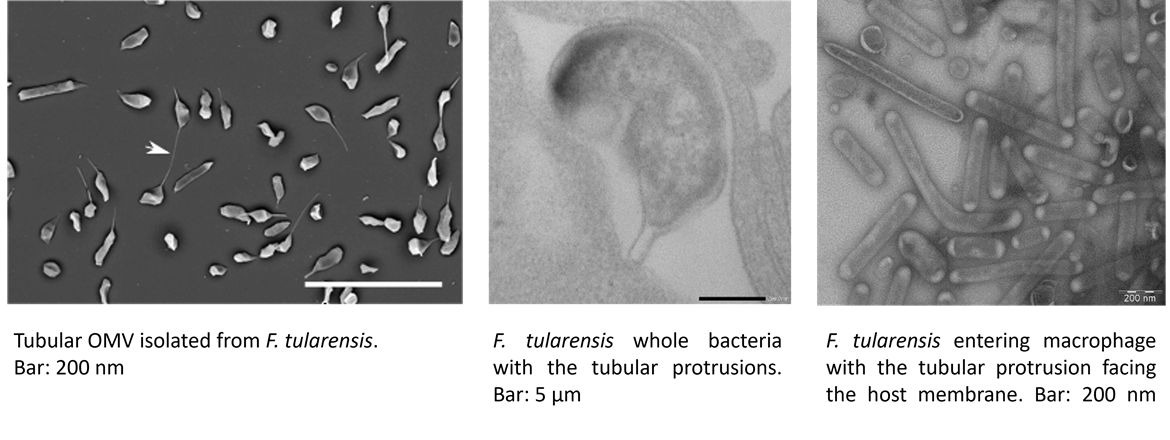

Department of Molecular Pathology and Biology
Faculty of Military Health Sciences, University of Defense
EV project leader: Jana Klimentová
email: jana.klimentova@unob.cz
The role of Francisella tularensis extracellular vesicles in the host-pathogen interaction and their protective potential
Francisella tularensis is a gram-negative facultative intracellular bacterium causing a severe disease called tularemia. Being one of the most infectious pathogenic bacterium it is classified as a potential biological warfare agent category A by the CDC. Francisella spp. is characterized by unique intracellular fate – after phagocytosis it can decompose the phagosomal membrane and escape into the cytosol where it multiplies. F. tularensis releases vesicles of unusual tubular shape that are highly enriched in immunomodulatory proteins and known virulence factors.
Our research is focused on the role of Francisella membrane vesicles and nanotubes in the interaction with host cell, particularly in the bacterial entry into the host cell and the vacuolar escape. Because there is no licensed vaccine against tularemia, we are also interested in the potential protective effect of Francisella vesicles. For this purpose, we search for hypervesiculating mutants which could serve as a source of better yields of vesicles for the protective studies. Finally, we attempt to isolate and characterize the extracellular vesicles derived from the host cells after infection by Francisella.
